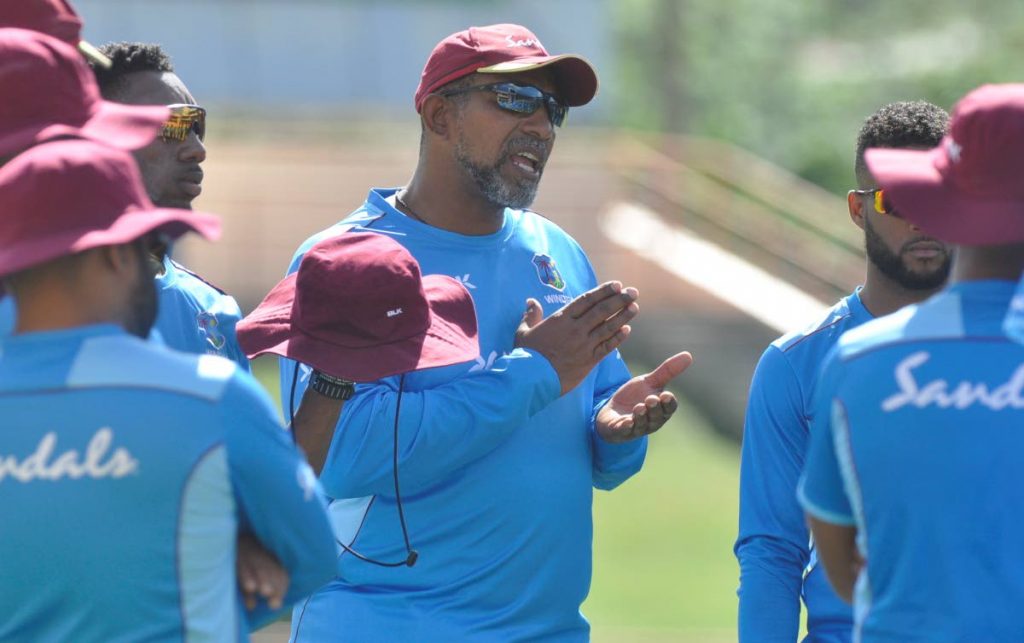No room for 'seniors' in cricket

IT may seem unimportant or trifling but it makes a difference to the harmony of a team when the attitude seems to favour some above others. That term "senior" can disrupt team unity, create detachment and trigger discord among 11 players on a cricket side who are all trying to pull the load together with a singular purpose!
I refer here to something which I have been aware of for the past 15 years at least, which crept into the TT cricket team when used by a few experienced players to refer to themselves. On the outside, it appears innocent enough, but psychologically, it can affect players on both sides of the divide. The captains, coaches and even selectors began using it to describe the more experienced players. Nonetheless, it’s wrong.
When a team is chosen to play a game, there is no one senior to another. They all have the same responsibility and should all be dancing to the same tune. From the time seniority is introduced, what is being done, although unwittingly, is saying that more depends on one player than another.
I’ve read things like "the senior batsmen did not perform well," or "I know that I ought to have made more runs, being a senior batsman on the side," or "my responsibility as a senior batsman is to lead the way for the others." And many more.
The players uttering these words have an underlying feeling of superiority to the others on the side. Hence that is not a good position for the team moving forward as a unit. It also breeds a feeling of insecurity and inferiority on other members of the team. The "junior" players tend to think that nothing much is expected of them and their job is to follow the lead of the "senior."
After selection, the selectors' mindset should be that this team can gel for the betterment of the team’s performance, the main purpose being to get the advantage over their opponent and defeat them by as wide a margin as possible.
However, this lack of thought, branding experienced players as "senior," or suggesting that those not yet established are not up to that standard, is lowering the expectations of the side’s commitment to strive together as a force against everything their adversary can throw at them.
It can also breed dissension in the ranks.
The experienced players who consider themselves "senior" are playing under stress because of their perceived accountability, therefore approaching the game with a tremendous burden on their shoulders.
I honestly don’t know how this began. However, I recall when a TT captain said it, probably in all innocence. Nevertheless, it started an avalanche of blame-passing and guilt whereupon some members of the team felt it was ok for them to fail, as the experienced men ("the seniors") are the ones to guide the cricket game to its conclusion.
In the first game I played for TT, I was the youngest on the team. I opened the batting with the captain, Nyron Asgarali, who was 18 years my senior, yet at no time did he make me feel anything but a vital part of the set-up, an important cog in the wheel; plus the other younger members as well.
When I was chosen for my first Test match and had to open with the seasoned opener Conrad Hunte, I was also the "baby" of the team; the manager was Sir Frank Worrell and the captain Sir Garfield Sobers. None of these gentlemen ever made me feel "junior" to them; on the contrary, they welcomed me into the team as one of them, equal to all and I was mixing with players who, a couple of years before, I was admiring from the sidelines; cricketers like Rohan Kanhai, Sir Wes Hall, Joe Solomon, Jackie Hendriks and Lance Gibbs.
Sir Frank treated everyone equally and told us on more than one occasion that we were grown men and he would appreciate if we would act accordingly.
This year the younger members of the Red Force team like Joshua Da Silva and Jyd Goolie, to mention a couple, played so well as not to be categorised.
Please desist from using the term "senior." It sends the wrong message. Every member of the team is equal.

Comments
"No room for ‘seniors’ in cricket"